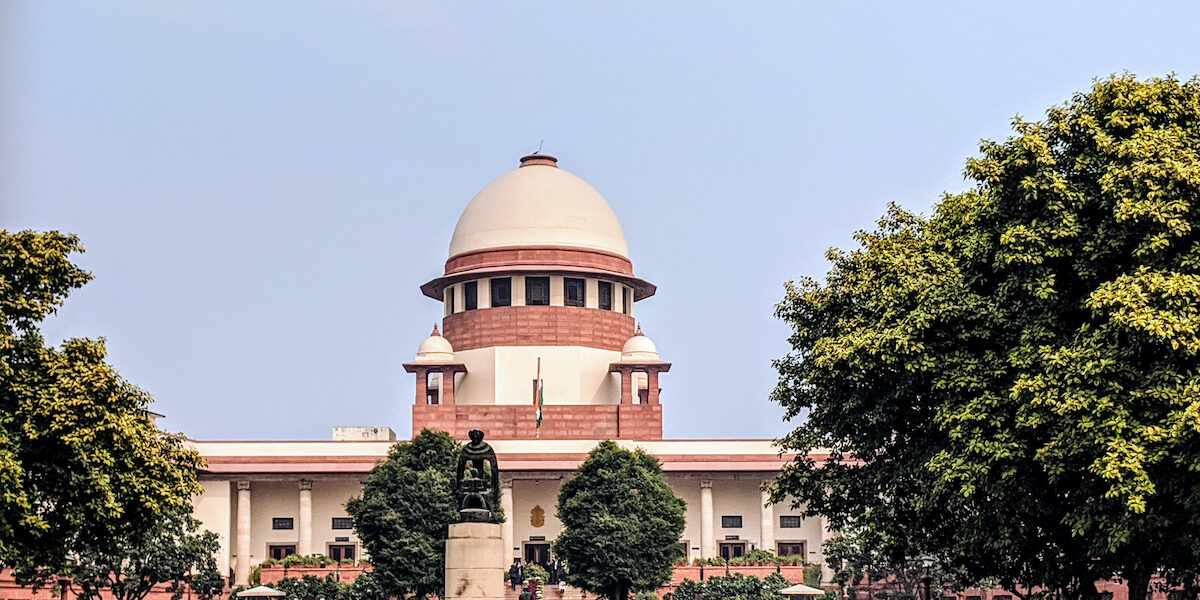Submitting that the debt of states affects the country's credit rating, the AG said a default by any State in debt servicing would create reputational issues and have a domino effect endangering India's financial stability.

The Supreme Court of India. (iStock)
Substantial off-budget borrowings have made Kerala one of the most financially unhealthy states in the country, the Union government has informed the Supreme Court.
Attorney General (AG) R Venkataramani submitted a detailed written note that stressed multiple studies documenting poor public finance management by Kerala.
The note responded to a suit Kerala filed in the apex court against the Union government’s limits on its borrowing capacities.
The Kerala plea, filed last December, said it was unable to fulfil the commitments made in its annual budget and that the Union government’s Net Borrowing Ceiling limited Kerala’s borrowings from all sources, including the open market, and curtailed its exclusive constitutional powers.
Incidentally, Kerala is the second state after Punjab to move the Supreme Court on this count.
The bench of Justice Surya Kant and Justice KV Viswanathan has set 13 February to consider Kerala’s request for interim relief.
The AG’s note said Kerala’s off-budget borrowings amounted to ₹42,285 crore from 2016-17 to 2021-22 through two state-owned entities (KIIFB and KSSPL) to circumvent the borrowing limits.
“Kerala has been one of the most financially unhealthy states and its fiscal edifice has been diagnosed with several cracks… Squeezed for funds for capital expenditure and to circumvent borrowing limits… Kerala has resorted to substantial off-budget borrowings through the Kerala Infrastructure Investment Fund Board (KIIFB),” Bar and Bench reported, quoting the AG’s note.
“Since these two State Owned Entities (SOEs) have no sources of income and the borrowings are to be repaid not from their revenue resources but from funds transferred from the Consolidated Fund of the State, the CAG has termed it an attempt to bypass targets set in Kerala FRBM (Fiscal Responsibility and Budget Management) Act and Net Borrowing Ceiling prescribed by the Centre.”
Venkataramani referred to a study by the IIM, Kozhikode, titled State Finances of Kerala, in 2017 that referred to the state’s “poor public finance management”.
He said the RBI had categorised Kerala as among five highly-stressed states needing urgent corrective measures.
This fiscal mishandling by the Kerala government has led to its financial stress, the note said.
“Despite the devolution of substantial resources from central taxes and duties, the highest share of post-devolution Revenue Deficit Grant, financial support extended by the Union government over and above the recommendations of the Finance Commission and substantial transfer of resources to the state government under the centrally-sponsored schemes, any financial stress that the government of Kerala is facing is purely due to its financial mismanagement.”
The AG’s note blamed Kerala for borrowing heavily to finance unproductive expenditure.
“Increases in the state’s debt-servicing liabilities as a consequence of higher borrowing by it will reduce the availability of funds for development, leading to impoverishment of people and loss of state income, and hence also loss of national income… if public finance is treated as a state-specific and not a national issue, the entire edifice of federal structure in the country will collapse like a pack of cards,” the note said.
Referring to the nation’s financial health in general. The AG’s note says public finance management is a national issue.
State debts and the country’s credit ratings
The note reasoned that the “debt of states affects the country’s credit rating. Moreover, default by any state in debt-servicing would create reputational issues and will have a domino effect endangering the financial stability of the whole of India”.
The note said that excessive borrowing by the states for avoidable expenditure runs the risk of crowding out private borrowing from the market.
“This will increase the borrowing costs of private industries and adversely impact the production and supply of goods and services in the market,” it explained.
Increases in the State’s debt servicing liabilities due to higher borrowing will reduce the availability of funds for development, leading to impoverishment of people and loss of State income, and hence also loss of national income. It may also engender various social and other problems.”
Regarding Kerala’s charge of the Union government capping its borrowing limit, the AG stated that the states need the Centre’s permission to borrow from any source.
While giving this permission, the Union government, considering the country’s macroeconomic stability, fixes a borrowing limit for the state seeking permission under Article 293(4). The recommendations of the Finance Commission are followed while fixing the limits, the note said.
Southern solidarity against Union government
Incidentally, the Union government’s submission came even as Kerala is preparing to hold a protest against the cap in borrowing limits in New Delhi on Thursday, 8 February.
The protest, to be led by Chief Minister Pinarayi Vijayan at Jantar Mantar, is against the Union government’s “step-motherly treatment” of the state.
LDF MPs, MLAs and others are expected to join the protest.
On 27 January, Vijayan told a news conference in Thiruvananthapuram that chief ministers of non-BJP states have been invited to join the protest gathering.
Tamil Nadu Chief Minister and DMK chief MK Stalin has extended full support to his Kerala counterpart on preserving fiscal federalism. He assured that DMK would join the protest.
Meanwhile, Karnataka Chief Minister Siddaramaiah led a protest at Jantar Mantar in Delhi against the Union government’s “fiscal injustice” on Wednesday.
Karnataka Congress MLAs, ministers, including the Deputy Chief Minister DK Shivakumar, were part of the protest that pushed for “my tax, my right” campaign.